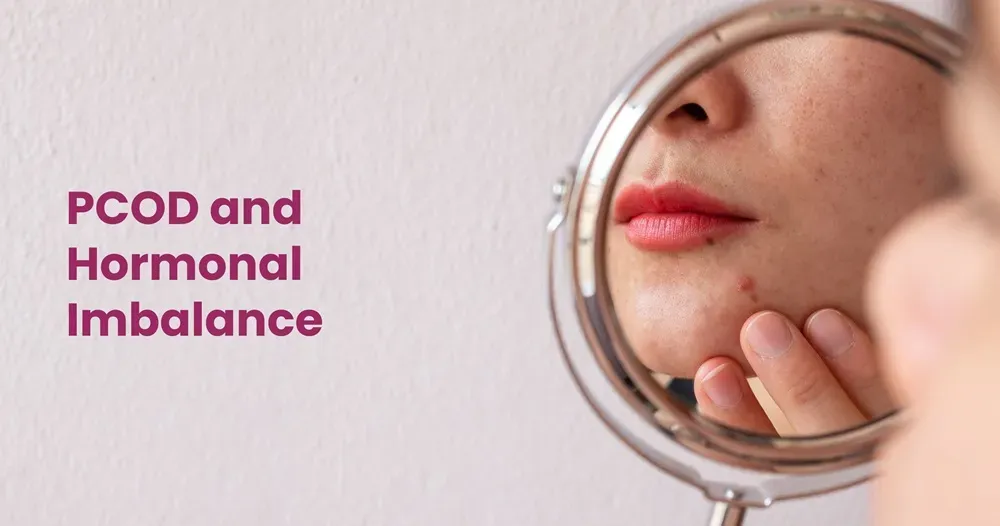Diabetes and the Psychological Connection
Oct 10, 2022

Globally, mental health issues have steadily increased over the years, further deepened by the emergence of COVID-19. India's scale of mental diseases accounts for almost 15% of the worldwide mental health burden. India likewise has a significant treatment gap.
According to a report by NIMHANS (National Institute of Mental Health and Neurosciences, more than 80% of people in India do not reach out for appropriate care services. This can be for a number of reasons, including a lack of understanding, stigma and the high cost of care. Mental health issues are currently among the primary causes of global health burden, with little indication of global decline since 1990.
How Diabetes Affects your Mental Health
Despite being a medical condition, diabetes has a huge impact on your mental health. It is believed that up to half of all diabetic patients suffer from severe anxiety and a lack of control (Diabetic distress).
Your thoughts, feelings, beliefs and attitudes can all have an impact on how healthy your body is. Untreated mental health concerns can aggravate diabetes, while diabetes complications can worsen your mental health issues. But fortunately, if one improves, the other usually improves as wel
fortunately, if one improves, the other usually improves as wel
People suffering from diabetes are 2 to 3 times more likely to have depression than people without diabetes. But only 25% to 50% of diabetes patients with depression get diagnosed and treated. However, the treatment—whether therapy, medicine, or both—is usually quite effective.
Symptoms of Depression
Mild to severe depression symptoms include feelings of constant sadness or emptiness, loss of interest in favourite activities, impulsive eating or loss of appetite, difficulty sleeping or sleeping too much, feeling tired all the time, irritable bowel, headaches, cramps, thoughts of self-harm, and so much more.
If you experience any of the above symptoms, you might be suffering from depression. However, not everyone will feel the same symptoms. You can experience different symptoms with varying lengths.
Obesity & Thyroid and their Link with Depression
Roughly 70–80% of obese people suffer from mental health issues. Stress, low self-esteem and depression collectively contribute to obesity. Many a time, people isolate themselves, stay at home and, as a result, become less productive. Overeating or stress eating is triggered by the need to seek escape from troubling thoughts or making it a coping mechanism, which is unhealthy in the long run.
Anxiety or depression are the main contributors to mood changes that one faces in thyroid disease. As the thyroid condition worsens, the mood swings become more severe. An unusually high level of anxiety may indicate hyperthyroidism (overactive thyroid).
Getting Help is Okay
It is okay to feel sad or lonely at times, but if it turns into a never-ending cycle, seek help. Don’t feel afraid to get help whenever you think depression is taking control of your life. Consult a therapist, get a regular check on your sugar levels and get your TSH levels checked timely so that the sooner you seek help, the better for you, your health and your quality of life.
Related Blog Post
Blog Categories
- Child Health
- Mens Health
- Women's Health
- Mental Health
- Health Myths & Facts
- Fitness
- Nutrition/Recipes
- Remedies
- Weight Management
- Stress Management
- Health Supplements
- Addiction Management
- Disease Management
- Allergy
- Anemia
- Arthritis
- Asthma
- Autoimmune Diseases
- Blood Pressure
- Cancer
- Deficiencies
- Dengue/Malaria/Chikungunya
- Diabetes
- Eye Problems
- Heart Diseases
- Hepatitis
- HIV/AIDS/STD
- Hormonal Imbalance
- Infection/Flu/Viral
- Kidney
- Liver
- Menstrual Problems
- Pregnancy
- Skin & Hair Problems
- Stomach Ailments
- Thyroid
- Others
- Health Checkups
- Diagnostics/Pathology
- Lifestyle & Wellness
- Covid
- Medical Tests
- Cholesterol
- Health Tips
- Parent Care/Old Age
- Lungs
- Food Intolerance








